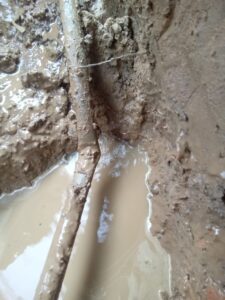Answering the Most Common Plumbing Questions

Plumbing is an essential part of any home, yet it’s something many of us take for granted until a problem arises. It’s no surprise that people have many plumbing questions. In this blog, we will address some of the most frequently asked plumbing questions and provide answers to help you better understand your plumbing system and how to maintain it.
- Why is my faucet dripping? A dripping faucet can be quite annoying and wasteful. The most common cause is a worn-out washer or O-ring in the faucet. Replacing these components can usually solve the problem. If the issue persists, it might be related to water pressure, which a professional plumber can diagnose and repair.
- How can I prevent clogged drains? Preventing clogged drains is essential to maintain a smoothly running plumbing system. Use drain screens to catch hair and debris, avoid pouring grease or large food scraps down the kitchen sink, and be mindful of what you flush down the toilet. Regularly flushing drains with hot water can also help prevent build-up.
- What’s the best way to fix a running toilet? A running toilet can waste a significant amount of water. Usually, it’s due to a faulty flapper or fill valve. Replacing these parts is relatively easy and can resolve the issue. If you’re unsure how to do this, consult a plumber for assistance.
- How often should I flush my water heater? Flushing your water heater annually is a good practice. Over time, sediment can build up at the bottom of the tank, reducing its efficiency and lifespan. Flushing helps maintain your water heater’s performance and prolongs its life.
- What should I do if my pipes freeze? Frozen pipes can lead to serious damage if not addressed promptly. Turn off the water supply and open the faucet nearest to the frozen section to relieve pressure. Then, carefully thaw the pipe using a hairdryer, heat gun, or warm towels. If you can’t locate the frozen section or are uncomfortable handling the situation, call a professional plumber.
- Is it okay to use chemical drain cleaners? Chemical drain cleaners can be effective but are not recommended for regular use. They can damage your pipes over time and may not always completely clear clogs. Consider using natural alternatives or a plumbing snake for safer and more effective results.
- How do I prevent water hammer in my pipes? Water hammer is the loud banging noise that occurs when water suddenly stops or changes direction in your pipes. To prevent it, install water hammer arrestors or pressure-reducing valves. These devices absorb the shock and protect your plumbing system.
- What are the signs of a hidden water leak? Hidden water leaks can cause significant damage if left undetected. Look out for signs such as unexplained increases in your water bill, water stains on walls or ceilings, musty odors, or mildew growth. If you suspect a leak, consult a plumber to locate and fix it.
Understanding the basics of plumbing and knowing how to address common issues can save you time, money, and frustration. While some plumbing problems can be DIY projects, it’s essential to recognize when to call a professional plumber to ensure a safe and effective resolution. By addressing these frequently asked plumbing questions, you’ll be better equipped to handle common plumbing issues and maintain a healthy plumbing system in your home.
Categories: Burst Pipes, Clogs, How to's, Water Heaters,By: Michelle Kurcina
Last modified:
Last Modified: November 29, 2023 at 7:40 pm


